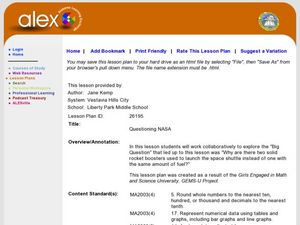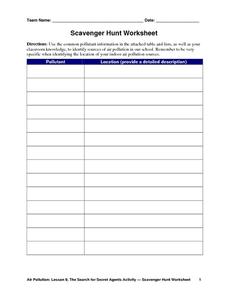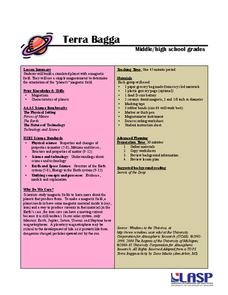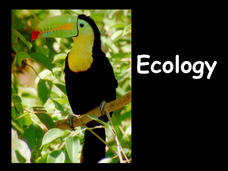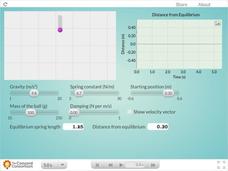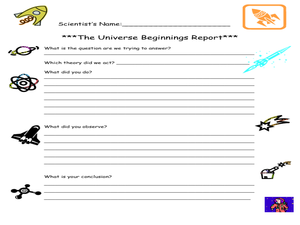Laboratory for Atmospheric and Space Physics
Where Are We Going?
Come take a ride on the space bus! Scholars go on an imaginary trip to pick up their peers from the inner and outer planets while reinforcing math skills. First, learners round decimals to identify each planets' distance from Earth....
NASA
Is It Alive?
Determining whether or not something is living can be more difficult than it seems. Put your young scientists to work defining their own criteria to identify life, then work with three samples to see if they are alive or not.
University of Colorado
Modeling Sizes of Planets
The density of the huge planet of Saturn is 0.7 g/cm3, which means it could float in water! In the second part of 22, science pupils explore the size and order of the planets. They then calculate weight and/or gravity and density of...
Curated OER
Questioning NASA
Space science and math collide in this inquiry that investigates launching times for antacid-tablet rockets! Upper elementary or middle school learners collect data as they launch these mini rockets. They apply concepts of place value...
Santiago Canyon College
Taking Notes for Science Class
Provide young scholars with the tools they need to succeed with this reference on the Cornell note-taking strategy. By breaking the content of lessons into main ideas, supporting details, and overall summaries, students are able to...
Curated OER
Stars and Slopes
More of a math lesson than physics or space science, high schoolers take a set of data and plot it on a log-log coordinate system. The write-up for day two was never completed, but day one, "Stars and Slopes," is complex and cohesive....
Teacher Printables
My Report Pack for. . .
Here is a handy guide for putting together a research report on birds, or on a selection of other topics (see the added materials.). Individuals are guided to think of three questions about their topic, they narrow down subtopics, use a...
Curated OER
Scavenger Hunt Worksheet
Exactly how environmentally friendly is your school? From the air fresheners in the bathrooms to the cleaning solvents used in the classrooms, young conservationists search the school grounds for sources of air pollution in...
NASA
Cosmic Microwave Background
Begin your next class with a BANG! Pupils discuss the formation of our universe and its expansion before proceeding with an activity designed to demonstrate what most likely occurred billions of years ago. They conclude with a discussion...
University of Colorado
Terra Bagga
One way to identify possible volcanic activity on other planets is by testing the planet for magnetism. A science instructional activity begins with pupils constructing their own planet from a dead battery, magnets, paper, and...
NOAA
Sediments
Calcareous ooze ... what an interesting name! The 15th installment of a 23-part NOAA Enrichment in Marine sciences and Oceanography (NEMO) program focuses on sediments found on the ocean floor. After viewing the slideshow lecture,...
US Environmental Protection Agency
Weather and Climate: What's the Difference?
Future weather forecasters collect daily temperatures over a period of time. Afterward, they compare their data with monthly averages, as researched on national weather websites, in order to grasp the difference between weather and...
NOAA
Plankton
Dive into the world of plankton. The 17th installment of a 23-part NOAA Enrichment in Marine sciences and Oceanography (NEMO) program introduces different types of plankton. Young scientists then use what they have learned to classify...
National Park Service
Reduce Our Carbon Footprint, Let’s Compost!
Roll up your sleeves and get a little dirty with this elementary and middle school compost lesson. All you need is a large plastic container, a couple old newspapers, some organic waste, and a few hundred worms and you're ready to start...
National Nanotechnology Infrastructure Network
Taking a Closer Look at Objects
Take a close look at the world around you with an activity that magnifies everyday objects. Five explorations examine items under intense magnification and pose a series of questions that encourage critical thinking and following...
Biology Junction
Ecology
Psychologists study human relationships while ecologist study relationships between organisms in the environment. An introduction to ecology and the related vocabulary benefits scholars as they progress through the presentation and...
Lunar and Planetary Institute
Oreo Moon Phases
Learning about the moon has never tasted delicious! Using the popular Oreo cookie as a model, young scientists carve out the cream filling to represent the different phases of the moon.
Lunar and Planetary Institute
Moon Flip Book
Watch an entire month flash before your eyes with this fun phases-of-the-moon flip book activity.
Concord Consortium
Spring and Mass
Here's a resource with more bounce for the ounce! Engage your physical science class with an interesting interactive that allows individuals to perform tests with a mass attached to a spring. Participants can customize the scenario by...
Concord Consortium
Pendulum
Add some zing to your swing! Explore pendulum motion through an engaging interactive. Physical science scholars specify the pendulum's mass, rod length, and starting angle before they observe the resulting angle graph.
Curated OER
Astronaut's Favorite Foods
Students examine space food. In this space science instructional activity, students visit suggested websites to identify the eight categories of space food. Students use a space food nutrition guide to classify space food.
Curated OER
Space: The Universe As We Know It!
Students simulate the Big Bang. In this lesson on the origin of our universe, students role play to show how the Big Bang explosion may have created our universe.
Curated OER
Living On The Moon
Students evaluate what life would be like living on the moon or another planet in our solar system. In this science lesson, students create a colony that they would use to live in on the moon using Legos.
Curated OER
Cooler in the Shadows
Students explore Earth science by creating a scale model in class. In this shadow lesson, students research the impact the sun has on Earth shadows and complete a space science worksheet. Students create models of the Sun and Earth and...
Other popular searches
- Science Space
- Astronomy and Space Science
- Physical Science Space
- Earth and Space Science
- Science Space Experiment
- Space Science Vocabulary
- Science Space Lessons
- Space Science Astronomy
- Science Space Race
- Star Maps Science Space
- Earth Space Science
- Science Space Station





